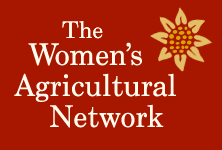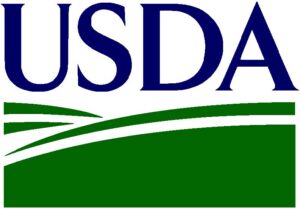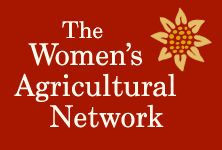Updated: 10/24/2020
This list is intended to help guide farmers and food producers to resources and support. If you have suggestions for information that should be here, please contact WAgN at wagn@uvm.edu or 802-476-2003 x204. Scroll down or use this table of contents to jump to a specific set of resources.
- New Resources
- Business Continuity
- Dairy and Livestock Operations
- Financial Assistance
- General Resources
- Labor & Unemployment Information
- Legal Aspects
- Marketing and Alternative Sales Channels
- Produce
- Other Resources
New Resources as of 10/24/2020
- Farmers’ Guide to the Coronavirus Food Assistance Program (CFAP) 3rd Edition. On October 23, 2020, Farmers’ Legal Action Group published an updated Farmers’ Guide to Coronavirus Food Assistance Program (CFAP). There have been a number of changes to the CFAP program since the first edition of this Guide was published. This edition describes the two main aspects of CFAP—the component of CFAP that provides direct payments to farmers and the Farmers to Families Food Box Program. This guide, any of its updated successors, and archived previous editions can be found at http://www.flaginc.org/covid-19-guide/.
-
CFAP 101 For Producers from the National Sustainable Agriculture Coalition (NSCA) pulls together a variety of resources to help people who work with farmers understand how to advise and support farmers interested in applying for direct aid. Included is an October 10 webinar which provided details on how the program works, including the different payment structures and expanded crops that are included in this program, as well as documentation that may be needed for the application process.
-
Vermont COVID-19 Agriculture Assistance Program (VCAAP) Agriculture and Working Lands Assistance program has opened the application period for a second round of Coronavirus Relief Funding. A wide variety of agricultural, food, and forestry businesses and organizations are eligible, and eligibility has been expanded to include sole propietors and businesses with a net profit between March 2020 and. August 2020. The second application deadline is November 15, 2020. Additionally, there are new programs for Farmers Market Relief and Farm to School Relief.
- Update: USDA Corona Virus Food Assistance Program provides direct relief to producers who faced price declines and additional marketing costs due to COVID-19. Good news for vegetable and berry growers: recent changes were made by USDA to include a payment rate for crops stored and not sold, rotted in storage because they were unsold, or undelivered. With these changes, USDA’s Farm Service Agency (FSA) has been able to support specialty growers, with one Vermont producer receiving a $24,000 payment. Specialty crop producers, especially those with fall 2019 crops (apples, potatoes, squash, carrots) or who grow greens, herbs, or other produce indoors should contact their local FSA office to apply. See: Farmers.gov/cfap for more information, including this fact sheet.
- The Vermont Releaf Collective Launches a Network of BIPOC Vermonters The Vermont Releaf Collective stands for Racial Equity in Land, Environment, Agriculture, and Foodsystems. This is a budding network of BIPOC (black, indigenous, people of color) in Vermont who enjoy, work in, lead in, benefit from, and contribute to the focus areas of the Releaf Collective. From farmers and farmworkers to restaurant employees, entrepreneurs and activists to scientists and practitioners, advocates and enthusiasts, the network seeks to create a collective and alliance of BIPOC stakeholders and organizations who are deeply committed to promoting racial equity.
-
Simpler PPP Forgiveness for $50K Loans or Less. The U.S. Small Business Administration (SBA) has released a simpler loan forgiveness application for Paycheck Protection Program (PPP) loans of $50,000 or less. This action streamlines the PPP forgiveness process for small businesses.
General Resources – Vermont
- Vermont Agency of Agriculture, Food, and Markets COVID-19 information page provides information for farms, agricultural businesses, farm markets and service providers.
- Agency of Commerce and Community Development (ACCD) is a one-stop shop for all types of Vermont businesses, as well as having resources for individuals and communities. Additionally, ACCD has specific sector-by-sector “stay safe” guidance, including provisions for agriculture, forestry and nurseries and greenhouses.
- To support businesses in their response and recovery, the Vermont Farm & Forest Viability Program is providing quick-response coaching to farm, food, and forest products businesses through its network of expert business advisors – free of cost. This initiative will also expand stress management, mental health, and mediation services to working lands businesses statewide. Entrepreneurs seeking help complete a short intake form and are matched with a business advisor for an initial 30-60 minute consultation. Advisors help the business address immediate needs, connect with available resources, and plan next steps, with follow-up as needed. Topics may include navigating federal & state relief programs, financial & cash flow planning, connecting with health & well-being resources, shifting markets, and scaling or pivoting to meet increased demand. Support is available to all Vermont working lands businesses.
- Protecting the Safety and Health of Vermont Workers training from the Vermont Occupational Safety and Health Administration (VOSHA). All essential businesses need to provide employee training on COVID-19 safety measures – this includes farmers. Questions can be directed to VOSHA at 1-800-287-2765.
- Vermont Specialty Food Association Coronavirus Resource Guide includes information and resources for business that are staying open and those who are temporarily closing. Topics include labor, financial assistance, childcare, and other issues.
- USDA Service Centers in Vermont will continue to be open for business by phone appointment only and field work will continue with appropriate social distancing. To conduct business with the Farm Service Agency, Natural Resources Conservation Service, or any other Service Center agency must call their Service Center to schedule a phone appointment. Producers can find Service Center phone numbers at farmers.gov/service-center-locator.
- UVM Extension protocols for farm visits with producers (published March 24, 2020).
General Resources – National
- US Department of Labor website on COVID-19 related unemployment coverage allows visitors to search by state and offers the most up-to-date information and links to sign up for unemployment. New in June: an online tool that guides workers through a series of questions to help them determine if they are eligible for paid sick leave or expanded family and medical leave under the Families First Coronavirus Response Act (FFCRA).
Business Continuity
- Readiness Assessment for Continuity of Business Checklist created by PASA Sustainable Agriculture and Penn State Extension is designed to help farmers, market managers and related farm and food businesses draft a continuity of business plan.
- Prioritized Farm Chore Checklist, from the University of Maine Cooperative Extension. Use this fillable PDF chores to identify and prioritize what needs to be done and when.
- Written Standard Operating Procedures (SOPs) will help back-up labor who might need to help with farm tasks should you or a remember of your team get sick or be unable to work.
- The Cornell Agricultural Workforce Development site provides guidance for agricultural employers on communicating with employees about coronavirus, steps to take to help keep employees safe and healthy, and contingency planning.
Produce-Related Resources
- Risk Reduction Options for Pick-Your-Own Farms During the COVID-19 Epidemic posted 4/24/2020. Vern Grubinger, UVM Extension Vegetable and Berry Specialist, outlines key risks, decisions and options for managing risks.
- Risk Reduction Options for Pick-Your-Own Farms During the COVID-19 Epidemic posted 4/24/2020. Vern Grubinger, UVM Extension Vegetable and Berry Specialist, outlines key risks, decisions and options for managing risks.
- Best Management Practices for U-Pick Farms During the COVID-19 Pandemic, from the Cornell University Small Farms Program. Posted 4/28/2020, this document provides recommended practices and communication strategies to protect farmers, their employees and their customers.
- Considerations for Fruit and Vegetable Growers Related to Coronavirus and COVID-19 by UVM Extension’s Agricultural Engineering Program. This site provides information on health and food-safety steps that growers should take, planning and communication advice for markets and farmers markets, and examples of what leading farmers and markets are doing to address risk. Information is also available as a podcast.
- COVID-19 Resources for Vermont Vegetable and Berry Growers provides links to agency guidance, cleaning and sanitizing resources, on-line ordering platforms, guidance for employers (including those employing H2A employees) and farmer-generated resources.
- Guide to Cleaning, Sanitizing and Disinfecting for Produce Farms from the UVM Extension Ag Engineering program.
Marketing and Alternative Sales Channels
- Selling and Sourcing Vermont Food in the Time of COVID-19: Farmers interested in direct sales, as well as agricultural service providers and others supporting farms are invited to join with other farmers, and educators and ag service providers to share strategies, challenges, and resources in a series of online conversations.This webpage contains links to Zoom recordings from previous sessions and registration information for upcoming opportunities.
- The Farmers Guide to Direct Sales Software Platforms from the National Young Farmers Coalition can help you compare software platforms for online sales channels.
- Recorded Webinar on Online Sales Platforms for Farmers
A one-hour webinar hosted by Oregon Tilth on online sales platforms for farmers is available as a recording. Watch this webinar to learn more about direct-to-consumer online sales platforms, including Barn2Door, Harvie, Local Food Marketplace, Food4All, and Open Food Network. Oregon Tilth has also posted questions to ask when considering online sales platforms. - Vermont Agritourism Facebook Group, created by the Farm to Plate Agritourism Task Force, is a discussion space for Vermont farmers who offer agritourism and direct sales. It is being used to share COVID=19 related resources and adaptations.
- Farm-Based Educator COVID-19 Think Tank on Facebook is a place to ask questions, give support and share resources and ideas about farm-based education in the time of COVID-19.
- Communicating Your Farm’s COVID-19 Practices to Customers from Future Harvest.
Legal Aspects
- Employment Law FAQ for Farmers and Food Producers Related to COVID-19 The Center for Agriculture and Food Systems at Vermont Law School created a guide to some of the most pressing legal questions for raised by the novel coronavirus: from paid sick leave, to unemployment insurance, to rules for small businesses.
- Farm Commons COVID-19 Resources include tutorials, print guides, podcast episodes to support farmers navigating legal issues related to COVID-19.
- The Farmer’s Guide to COVID-19 Relief from the Farmers’ Legal Action Group is a comprehensive guide on how programs authorized by the CARES Act can provide relief to farmers.
Labor & Unemployment Information
- Protecting the Safety and Health of Vermont Workers training from the Vermont Occupational Safety and Health Administration (VOSHA).
- Status of H2A Workers (from Terry Bradshaw, 3/24/2020)
- US Department of Labor website on COVID-19 related unemployment coverage allows visitors to search by state and offers the most up-to-date information and links to sign up for unemployment.
Resources for Dairy and Livestock Operations
- On 7/14, the state of Vermont opened the VCAAP Dairy Assistance Program, the first of three economic relief programs for the agriculture community under the Vermont COVID-19 Agriculture Assistance Program (VCAAP). Details about Vermont agricultural assistance programs can be found on the VAAFM Vermont COVID-19 Agricultural Assistance webpage.
- How can Livestock Farmers Prepare for Coronavirus (published March 2, 2020) by University of Maine Extension. This article suggests pro-active measures to keep animals healthly and to ensure that essential activities are completed should farmers or a member of the their team become unable to do farm work.
- What You Need to Know About Coronavirus (COVID-19) On Your Dairy (PDF-English) from Alltech On-Farm Support.
- What You Need to Know About Coronavirus (COVID-19) On Your Dairy (PDF-Spanish) from Alltech On-Farm Support.
Financial Assistance
- Vermont COVID-19 Agriculture Assistance Program (VCAAP) Agriculture and Working Lands Assistance Application $8.5 Million in CARES Act Coronavirus Relief Funding will soon be available to a wide variety of agricultural, food, and forestry businesses and organizations through the Vermont COVID-19 Agriculture Assistance Program (VCAAP) Agriculture and Working Lands Assistance Application. The deadline to apply is October 1, 2020. However, grants will be awarded on a first-come, first served basis so the application may close prior to October 1 if all funds are expended.
- Update: USDA Corona Virus Food Assistance Program provides direct relief to producers who faced price declines and additional marketing costs due to COVID-19. Good news for vegetable and berry growers: recent changes were made by USDA to include a payment rate for crops stored and not sold, rotted in storage because they were unsold, or undelivered. With these changes, USDA’s Farm Service Agency (FSA) has been able to support specialty growers, with one Vermont producer receiving a $24,000 payment. Specialty crop producers, especially those with fall 2019 crops (apples, potatoes, squash, carrots) or who grow greens, herbs, or other produce indoors should contact their local FSA office to apply. See: Farmers.gov/cfap for more information, including this fact sheet: https://www.farmers.gov/sites/default/files/documents/CFAP-SpecialtyCrops-FactSheet-English-07202020.pdf
- Emergency SBA funding through the Paycheck Protection Loan Program (PPP) can cover payroll costs, utilities, mortgage interest or rent. Farms that meet SBA small business thresholds are eligible to apply for this low interest, forgivable loan program. PPP loans are first come first served, until funding is expended, and are applied for through your local lender. All loans need to be finalized by June 30. Learn more about PPP loans.
- American Farmland Trust Farmer Relief Fund
To help directly support farmers impacted by the current crisis, American Farmland Trust (AFT) launched its Farmer Relief Fund. AFT’s Farmer Relief Fund will award farmers cash grants up to $1,000 each to help them weather the current storm of market disruptions caused by the coronavirus crisis. Initially, eligible applicants include any small and mid-size direct-market producers. These are defined as producers with annual gross revenue of between $10,000 and $1 million from sales at farmers markets and/or direct sales to restaurants, caterers, schools, stores, or makers who use farm products as inputs. Applications are due by April 23, 2020. - The New England Grassroots Environmental Fund is offering up to $1,000 grants to organizations with budgets under $100,000 to support their response to COVID-19.
- Small Business Administration Disaster Loans in Response to Coronavirus The U.S. Small Business Administration is offering designated states and territories low-interest federal disaster loans for working capital to small businesses suffering substantial economic injury as a result of the Coronavirus (COVID-19). These loans may be used to pay fixed debts, payroll, accounts payable, and other bills. The interest rate is 3.75% for small businesses and 2.75% for nonprofits.
- Vermont Farm Fund Emergency Loans
Other Resources
- Small Farms, Local Food, and COVID-19: What do you need to know? PDF from Oregon State University
- What Ag Producers Need to Know about COVID-19, available as a webinar or podcast from the AgriSafe Network. This hour-long recorded session focuses on helping produces identify response strategies for their farms. It covers signs and symptoms of COVID-19, transmission risks in agricultural operations, transmission control strategies and resources. Free, but you may need to establish an account in order to access the recordings.






